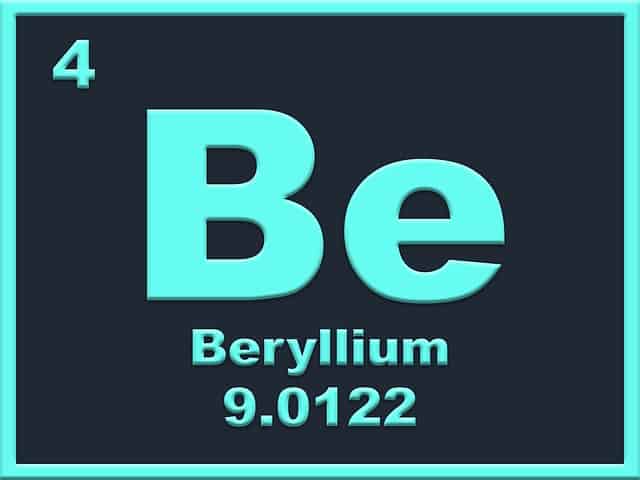The Occupational Safety and Health Administration (OSHA) recently passed a revised final rule of the beryllium standard for general industry, set to be enforced September 14, 2020. What changed?
Definitions
- Confirmed positive – OSHA revised the definition of a confirmed positive case of CBD or other beryllium health effect. Before the revision, there was no time limit to where beryllium lymphocyte proliferation test (BeLPT) tests counted towards a confirmed positive. The revised definition of a confirmed positive now requires: two abnormal, one abnormal and one borderline, or three borderline BeLPT tests, within a three-year period to be considered a confirmed positive.
Housekeeping
- Disposal, recycle, reuse of beryllium containing products – The revised standard clarifies that the labeling requirements for transferring beryllium containing products and materials for disposal, recycling, or reuse, do not apply to intra-plant transfer. However, the labeling and shipping requirements are still required when transferring outside of the plant, including between facilities owned by the same employer.
- Recordkeeping – Employee social security numbers are no longer required to be kept for air monitoring, medical surveillance, and training records.
Other
While there are no substantial changes; these sections received more clarification as to what is required and when provisions apply within the standard: written control plans, personal protective equipment, hygiene areas, and hazard communication.
Additionally, the revised standard includes an appendix which list the most common beryllium exposure processes.




Medical Surveillance
- Confirmed positive – OSHA revised the definition of a confirmed positive case of CBD or other beryllium health effect. Before the revision, there was no time limit to where beryllium lymphocyte proliferation test (BeLPT) tests counted towards a confirmed positive. The revised definition of a confirmed positive now requires: two abnormal, one abnormal and one borderline, or three borderline BeLPT tests, within a three-year period to be considered a confirmed positive.
- Frequency after emergency exposure –The revised standard now requires employers to offer a medical examination to an employee within 30 days after the employee was exposed to beryllium in an emergency if they have not had a medical examination within the last two years. If the employee has had a medical examination within the last two years, they must be offered a medical exam within 1-2 years after the emergency. Before the revision, a medical examination was required for employees within 30 days of being exposed to beryllium in an emergency. Additionally, employers must offer a medical examination to any employee who has not received an examination since the emergency exposure at the time the employee is terminated.
- Medical exams at a chronic beryllium disease (CBD) diagnostic center –
The revised standard requires that the medical evaluation must be scheduled within 30 days. Additionally, employers are now required to provide any medical test deemed appropriate by the examining physician at the CBD diagnostic center. If the tests deemed appropriate are not offered at the CBD diagnostic center, they may be performed at another location. Under the previous version of the standard, employers were required to provide medical surveillance at a CBD diagnostic center upon receipt of a physician’s written medical report indicating the employee has been confirmed positive or diagnosed with CBD, or recommending referral to a CBD diagnostic center within 30 days.
